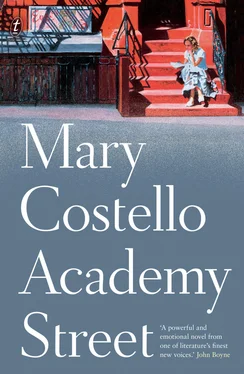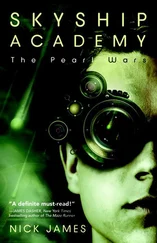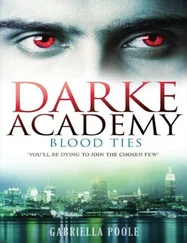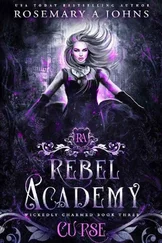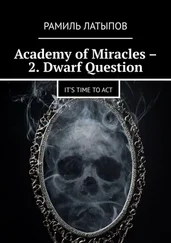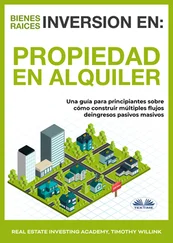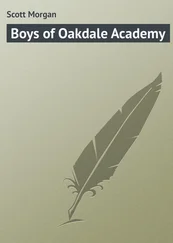Mary Costello - Academy Street
Здесь есть возможность читать онлайн «Mary Costello - Academy Street» весь текст электронной книги совершенно бесплатно (целиком полную версию без сокращений). В некоторых случаях можно слушать аудио, скачать через торрент в формате fb2 и присутствует краткое содержание. Год выпуска: 2014, Издательство: Text Publishing Company, Жанр: Современная проза, на английском языке. Описание произведения, (предисловие) а так же отзывы посетителей доступны на портале библиотеки ЛибКат.
- Название:Academy Street
- Автор:
- Издательство:Text Publishing Company
- Жанр:
- Год:2014
- ISBN:нет данных
- Рейтинг книги:3 / 5. Голосов: 1
-
Избранное:Добавить в избранное
- Отзывы:
-
Ваша оценка:
- 60
- 1
- 2
- 3
- 4
- 5
Academy Street: краткое содержание, описание и аннотация
Предлагаем к чтению аннотацию, описание, краткое содержание или предисловие (зависит от того, что написал сам автор книги «Academy Street»). Если вы не нашли необходимую информацию о книге — напишите в комментариях, мы постараемся отыскать её.
J.M. Coetzee
Academy Street This is an intimate story about unexpected gifts and unbearable losses, and the perpetual ache for belonging. It is exquisitely written and profoundly moving.
Academy Street — читать онлайн бесплатно полную книгу (весь текст) целиком
Ниже представлен текст книги, разбитый по страницам. Система сохранения места последней прочитанной страницы, позволяет с удобством читать онлайн бесплатно книгу «Academy Street», без необходимости каждый раз заново искать на чём Вы остановились. Поставьте закладку, и сможете в любой момент перейти на страницу, на которой закончили чтение.
Интервал:
Закладка:
After a while he asked, ‘Do you believe in God?’ He was thinking of the African boy who had died and come back, or his dead son. Or himself, maybe.
‘Yes,’ she said. ‘And you?’
He considered for a few moments. He spoke slowly, softly. ‘In chess you feel it, you know…something. It’s involuntary — my hand reached out of its own accord all those years to make those moves.’
His eyes drifted to the window. They were high up. The sun had gone down. The city lay all around them. After a while he spoke again.
‘There is, in some of us, an essential loneliness…It is in you.’
She looked away. They were quiet for a long time. ‘You know something?’ he said then. He was staring at a spot at the end of the bed. ‘I could fit my whole life on one page. I could write it all down on a single page.’ He turned and looked into her eyes. ‘And I am astonished that it is over and I am here, at the end.’
A few nights later, when she came on duty, she found him in a room assigned to the dying, no longer conscious. Near midnight, with the lights low and the other patients sleeping, she sat with him. She had a need to talk to him, the living to the almost dead. His long body lay beneath the bedclothes, his breath shallow. She touched his hand. He had left a clarity, an intense burn, on her. She leaned close, stroked his head, the wisps of white hair. She left her hand on his forehead. There would be no one to wash him or wake him. She felt the tip of his nose, his fingers, icy cold. She sat back and waited. ‘Not long more,’ she whispered.
The following night she sat at the kitchen table cutting grocery coupons from the newspaper. Theo was asleep in his room and the radio was on, low. Now and then the central heating pipes hissed, then sighed. She hummed along to the song on the radio. I would rather go blind, boy, than to see you walk away. She thought of a life fitting on one page. She had always had a need to live by inner signs and had been in perpetual waiting for them to break through. In their absence she had gone blindly on, abiding, making few human measurings.
And yet now in this time, in this life with Theo, there was calm. She felt it a vocation. And she was, she thought, the kind who needed a vocation, to be given over to one thing. She smiled. In another life she might have been a nun. A bride of Christ, her whole being turned over to prayer and reflection, a dissolution of her corporeal self. On the radio a saxophone played. She tilted her head, each plaintive note reaching her. She was a mother, a nurse. These were good things, sure and pure and constant. She need not be afraid. There were worse things. She thought of David. His face floated before her, and with it the germ of an ache. Would there ever come another night, another time, another man, to match that brief all-consuming union? The scene of their lovemaking surfaced. The dreamy feeling, the intoxicating evening, the desire that went awry.
Suddenly the light bulb flickered and the radio crackled. She heard the rumble of thunder nearby and a flash of lightning lit the building opposite. The bulb flickered again, and went out. She sat still, in the darkness, waiting for the next eruption. If only there had been a second time with him, a second chance to make good that night, to make right that wrong. She had been too happy. Such happiness carried danger at its heart, the seed of its own demise.
When the child was five he started at the Good Shepherd School. Willa took him by the hand and led him and her own kids and the Gallaghers — a trail of small children — along the streets to the school door. On her mornings off Tess herself took him and he strode ahead of her, advancing like he already knew his way, fair and strong and beautiful. After school on summer days he poked in the borders in the park and pressed his face into the grass. She was reminded of Captain nosing in the undergrowth at Easterfield, privy to scents and sounds and hidden wonders — a myriad of minuscule things. She thought that the child sensed this too — the teemingness, the intoxication, the mystery of the physical world.
He learned to read quickly, drawn deep and enchanted by stories. She told him folk tales from her own school days, the Salmon of Knowledge, the Children of Lir. She took him to the library, to Mass on Sundays. She wanted him to know all she held dear, everything that would make rapturous his heart. Heedless of his surroundings, he was drawn to solitary activities, fascinated by singular things. He had a hunger to know everything and year after year his enthrallment grew: birds, trees, the stars and planets, the moon landing, the human body — the boundless universe — all subject to his penetrating intensity. Sometimes, over-excited and overwhelmed by the approach of some dizzying new project, he paled and vomited. He was stepping outside the range of normal awareness into another domain. She sensed inner rhapsodies, an antique state of mind, felicities he could scarcely bear. Occasionally, among other kids, she observed a hesitancy in him, a caution that troubled her. Hyper alert, eager to join in, but guarded, conflicted, wary that what he felt inside — the raptures and ecstasies — might be visible, and mark him out for ridicule or shunning.
‘What’s your book about?’ she asked one evening when he was eight. She stood behind him, smoothed his hair. A time would come when she would not be able to touch him thus.
‘Ants. An ant city,’ he said, engrossed. He did not look up.
When she went to turn out his light the ant book lay across his chest, and she imagined him drifting to sleep a while before, the ants pulsing in his brain. She took the book into the kitchen. She had not known such subterranean marvels existed. Minute creatures who were master builders. She gazed at the drawings of tiny insects bearing gigantic loads on their backs, pushing mountains of matter with their heads, their delicate antennae foretelling obstacles up ahead. In the dark of deserts there were networks of tunnels in the sand, terraces, towers, refuse heaps. She was filled with awe at the complex social order they created, the castes of workers, the division of labour, the labyrinthine city. God’s architects . Guided, impelled, by what? Instinct? Divine intervention? She lingered over a drawing of an ant, the compound eyes, the mandibles, the thorax and abdomen, the wings shed after flight. She was mesmerised. Here in her kitchen that evening, oblivious to everything, the child had been transported, lost in the ant city, tumbling into tunnels, into ants’ lives. Seeing with their ant eyes and beholding their city, their Jerusalem. Their Jerusalem becoming his Jerusalem.
When he was nine or ten she took him out to Brooklyn one Saturday, to a birthday party at the home of Priscilla, an Italian-American girl who nursed with her. Priscilla and her husband and son lived on a quiet street with neat lawns and cars in driveways. Tess stood in the hall and Theo moved away to join the others. She saw through to the back yard and the adults and children moving about. In the evening when she returned he did not want to leave. Something in that house, in that family, had favoured itself to him. ‘Let him stay, Tess,’ Priscilla said. ‘We’ll drop him back tomorrow.’
She walked along the street. It was February. She looked in windows, at living rooms with TVs, lamps, open fires. The lives of others. She had not felt this way before: less , in his eyes. She understood what he had seen, what he had been denied, and she was bereft. His life was wanting. She had not ever baked him a birthday cake or put up balloons — his birthdays had been celebrated in Willa’s apartment after school. She had bought him books, taken him to libraries, but had not had his friends over. Once she had taken him to Coney Island but the sight of his happiness in the water mixed with her memories of that place had hurt her. She had not taken him back. She had not taken him to a circus or a ball game or an ice rink. She had not provided him with a father to kick a ball with in the park.
Читать дальшеИнтервал:
Закладка:
Похожие книги на «Academy Street»
Представляем Вашему вниманию похожие книги на «Academy Street» списком для выбора. Мы отобрали схожую по названию и смыслу литературу в надежде предоставить читателям больше вариантов отыскать новые, интересные, ещё непрочитанные произведения.
Обсуждение, отзывы о книге «Academy Street» и просто собственные мнения читателей. Оставьте ваши комментарии, напишите, что Вы думаете о произведении, его смысле или главных героях. Укажите что конкретно понравилось, а что нет, и почему Вы так считаете.
